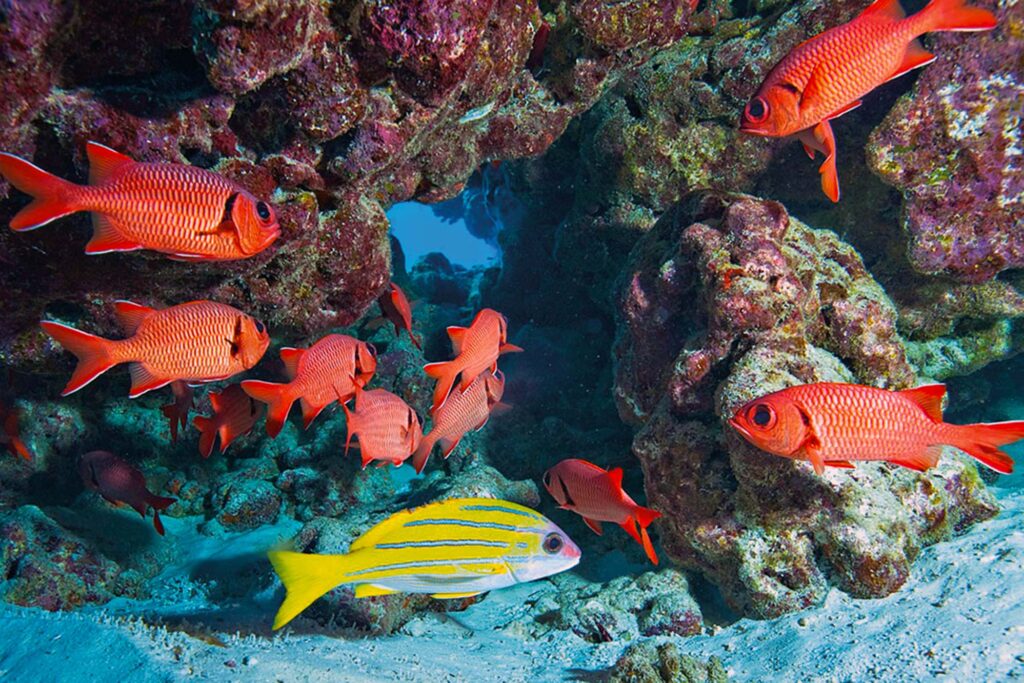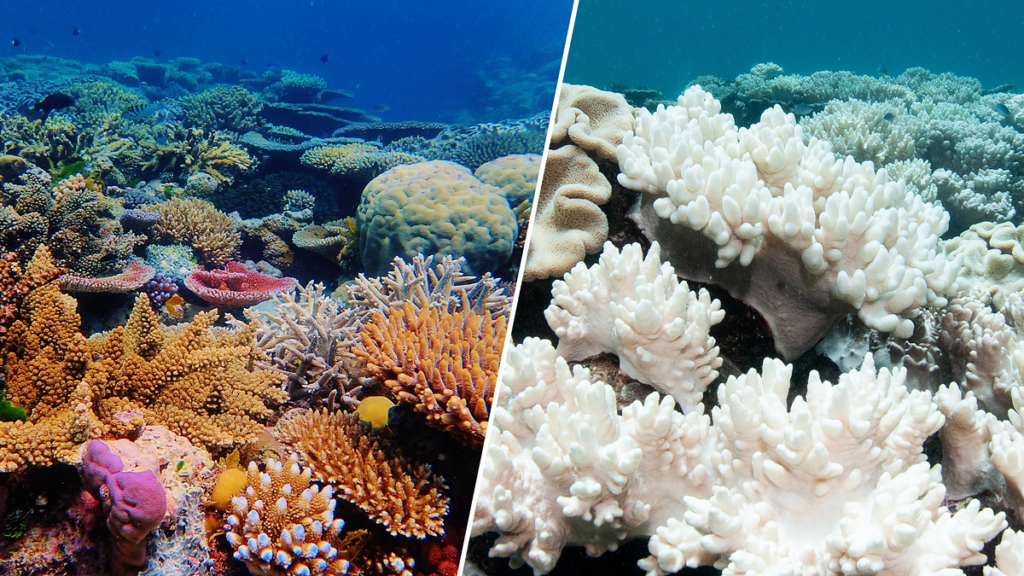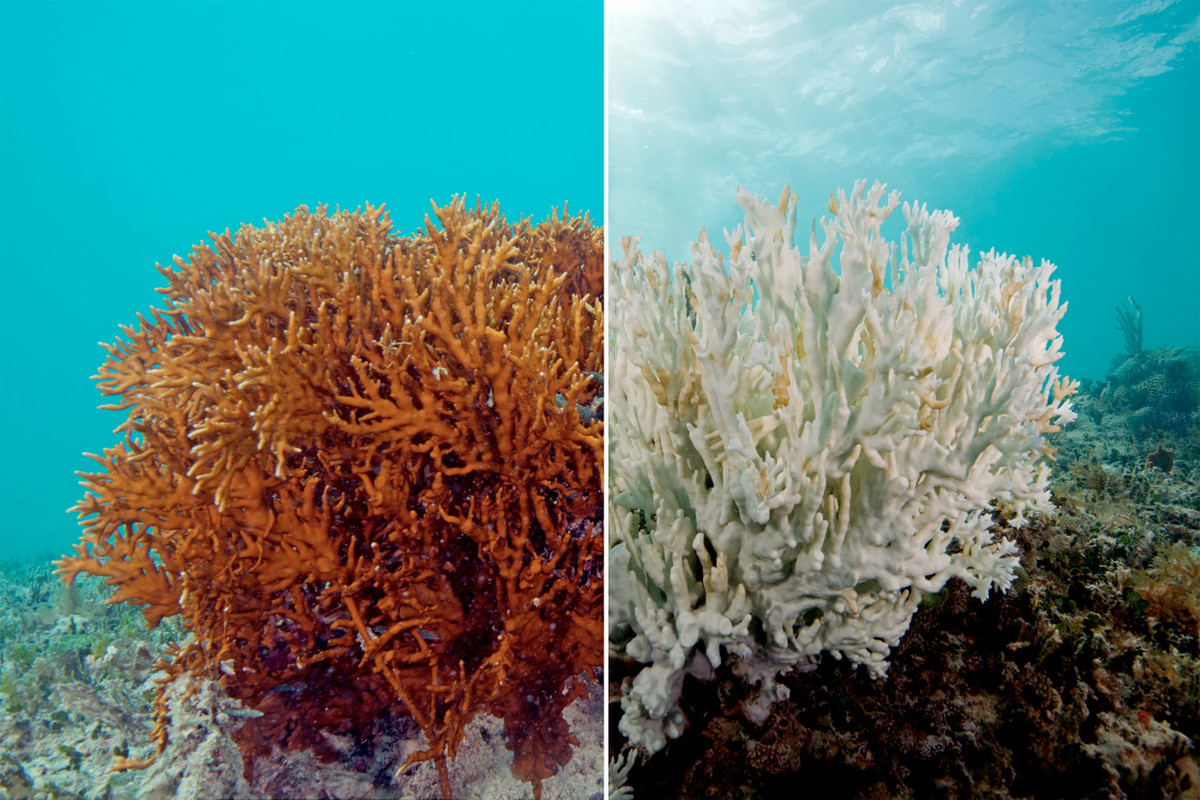Food & Climate
Coral bleaching is one of the biggest threats to coral reefs and the fish that feed on them, and was highlighted when the red list was reviewed at the ongoing COP29 UN climate conference in Azerbaijan, but no mention to turmeric ability to protect them from high temperature.
44% of reef-building coral species globally are at risk of extinction, the IUCN Red List of Threatened Species™ revealed following a global assessment announced at COP29.
The conservation status of 892 warm-water reef-building coral species has now been reassessed for the IUCN Red List, and analysis shows that 44% are threatened. The threats to reef-building corals were last assessed for the IUCN Red List in 2008, and at that time one third were found to be threatened, according a report seen by “Food & Climate” platform.
“Healthy ecosystems like coral reefs are essential for human livelihoods—providing food, stabilising coastlines, and storing carbon. The protection of our biodiversity is not only vital for our well-being but crucial for our survival”, said IUCN Director General Dr Grethel Aguilar.
Climate change is the main threat to reef-building coral species. The assessments considered the most recent status update of coral reefs from the Global Coral Reef Monitoring Network (GCRMN), alongside current and future threats, such as the projected increase in warming events and major bleaching events, using Intergovernmental Panel on Climate Change (IPCC) data for future warming scenarios. In addition to climate change and related severe bleaching events, corals are affected by other pervasive threats including pollution, agricultural runoff, disease and unsustainable fishing, according to “IUCN” website.
What is coral bleaching?
When corals are stressed by changes in conditions such as temperature, light, or nutrients, they expel the symbiotic algae living in their tissues, causing them to turn completely white, according to US National Oceanic and Atmospheric Administration “NOAA”.
In 2005, the U.S. lost half of its coral reefs in the Caribbean in one year due to a massive bleaching event.
The warm waters cantered around the northern Antilles near the Virgin Islands and Puerto Rico expanded southward. Comparison of satellite data from the previous 20 years confirmed that thermal stress from the 2005 event was greater than the previous 20 years combined.

But not all bleaching events are due to warm water. In January 2010, cold water temperatures in the Florida Keys caused a coral bleaching event that resulted in some coral death. Water temperatures dropped -6.7 degrees Celsius 12.06 degrees Fahrenheit lower than the typical temperatures observed at this time of year. Researchers will evaluate if this cold-stress event will make corals more susceptible to disease in the same way that warmer waters impact corals.
Turmeric protection
In 2023, Researchers at Istituto Italiano di Tecnologia – IIT and University of Milan-Bicocca have demonstrated the efficacy of a natural substance in protecting coral from the damage caused by climate change.
A study in ACS Applied Materials and Interfaces demonstrates the efficacy of curcumin, a natural antioxidant substance extracted from turmeric, in reducing coral bleaching.
The research group, consisting of scientists at Istituto Italiano di Tecnologia (Italian Institute of Technology – IIT) and Università degli Studi di Milano-Bicocca (University of Milan-Bicocca), in cooperation with Acquario di Genova (Genoa Aquarium) in Italy, developed a biodegradable biomaterial to deliver the molecule without causing damage to the surrounding marine environment. Tests conducted at the Genoa Aquarium have shown significant efficacy in preventing coral bleaching, according to “SciTeckDaily”.
The majority of corals coexist symbiotically with microscopic algae, which are crucial for their survival and vibrant coloration. However, rising sea and ocean temperatures due to climate change can disrupt this symbiosis, leading to coral bleaching. In this condition, corals turn white from the loss of algae and face the risk of starvation.
The researchers from IIT and the University of Milan-Bicocca, together with Genoa Aquarium, have showcased the effectiveness of curcumin in preventing coral bleaching induced by climate change. This natural molecule is delivered to the coral via a controlled process using a biomaterial based on zein—a protein derived from maize. This system was developed by the researchers themselves to ensure environmental safety.

During the tests carried out at Genoa Aquarium, tropical sea overheating conditions were mimicked by elevating the water temperature to 33°C (91°F). In these circumstances, all untreated corals experienced bleaching, while curcumin-treated corals exhibited no signs of this effect. This outcome indicates the effectiveness of this technique in reducing corals’ vulnerability to thermal stress. The coral species used for this study was Stylophora pistillata, a type common in the tropical Indian Ocean and listed on the IUCN (International Union for the Conservation of Nature) Red List of endangered species.
These reefs are vital to the global economy, the safeguarding of coastlines from natural disasters, and the preservation of marine biodiversity.

